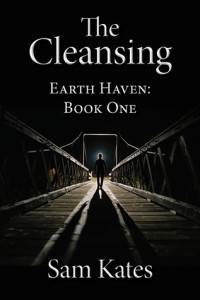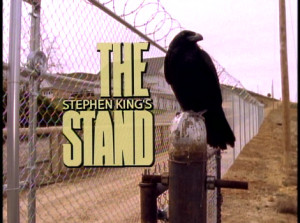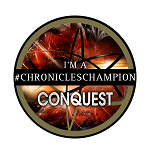So the first in a series of articles running on that genre of book known as Post Apocalyptic Fiction comes from Sam Kates, author of “The Cleansing”. Look out for other articles from a variety of lovely authors and readers coming over the next little while. We will also be looking at Dystopian fiction and Crime Fiction in the coming weeks. Over to you Sam!
It’s the End of the World As We Know It
The title of this piece comes from an REM song that was a minor hit in the UK in the early nineties. It’s a good song by an extremely good band, but that’s by the by. It’s the phrase I want to talk about: the end of the world as we know it. An overused phrase when it comes to post-apocalyptic fiction, but being a cliché does not make a saying untrue. On the contrary. For me it succinctly sums up the attraction of post-apocalyptic fiction to both readers and writers. The world hasn’t ended in the sense that it’s been blown to smithereens and Mars has become the third rock from the sun. No, the world is still here; but it’s a version that we don’t recognise.
Apocalyptic events come in all shapes and sizes. Meteor and asteroid strikes; deadly pandemics; nuclear war; disastrous climate changes; attack by extra-terrestrials; plagues of undead. What they have in common is the wiping out of a large proportion of the world’s population, and a struggle for survival by the remaining people in a world where the previous rules no longer apply.

In the immediate aftermath there is no law and order, no society, no culture, no international boundaries. There are no checks and balances. What morality remains has to struggle to assert itself amidst anarchy. Humankind is reduced to its basest, most bestial form.
There’s the attraction for the writer. A blank page that can be filled however he (or she, but for the sake of brevity can we take ‘she’ as read?) chooses. The writer may open the story with the apocalyptic event itself. Or he may jump forward a hundred years, or a thousand, whatever he wants, and leap right in at a point where new rules are already established, new orders have arisen, new currencies are being traded or fought over.
The writer can develop new goals and conflicts that are unlikely to arise in the world as we know it. Maybe the acquisition of uncontaminated water will be the overwhelming aim of survivors in the new world; or arable land; or sanctuary from mutant enemies; or dry ground; or a cure for disease; or shelter from deadly solar rays; or… The possibilities are endless.
The reader will take delight in entering a world where all bets are off. He will relish trying to identify the new rules, if indeed there are yet any, and putting himself in the place of the protagonists. How would he, the reader, cope if thrust into such a world? Might there even be, whisper it quietly, something desirable about inhabiting a world where there are no conventions?
That was how I first became attracted to the genre. I was a young boy, probably around nine or ten, and watched The Omega Man on television one Saturday evening. I can still recall the thrill I felt at seeing Charlton Heston enter a department store and pick out any clothes that took his fancy without having to pay for them. I imagined being in his shoes, walking down a litter-strewn, deserted high street, calling into every toy, sweet and gun shop that I passed (they were always toy, sweet or gun shops – I was nine) and simply helping myself. In my boyhood mind, I was the most dangerous sweet-sucking, gun-toting, toy-laden critter in town. Of course, I was the only sweet-sucking, etc. critter in town but didn’t let that get in the way of a good fantasy. My childish self conveniently ignored the downside to finding myself in such a scenario: the loneliness, the desolation, the abject despair.
Those aspects were brought home to a slightly older version of me with the BBC television series The Survivors. I only vaguely remember the original (it was remade a few years ago), but recall it being grey, gritty and downright miserable. It nevertheless cemented my love of the apocalyptic story.
Around four or five years later, I read Stephen King’s The Stand. This still ranks as one of my favourite post-apocalyptic books (along with Russell Hoban’s Riddley Walker and Cormack McCarthy’s The Road). I especially enjoyed watching the apocalyptic event unfold and seeing what happened in the immediate aftermath (elements, along with a deadly virus, that I use in my own apocalyptic novel The Cleansing). Having wiped out most of the population of the United States – we never see what is happening in the rest of the world – with a manmade superflu bug, Mr King could have taken the story in any one of a multitude of directions.
There is so much conflict inherent in an apocalyptic scenario that the writer doesn’t need to invent more. The mere struggle for survival is compelling in itself: the competition with other survivors for scarce resources, threats from predators old and new (animal and human), establishment of new bonds that will determine whether the human race can continue. But that’s the beauty of stories about the end of the world as we know it: almost any new element – spiritualism, the supernatural, mysticism, the extra-terrestrial, and so on – can be introduced to add even more spice to an already tasty dish.
Mr King could have shown the surviving humans in The Stand struggling to adapt to their new world without introducing any extra conflicts, and no doubt it would have been a cracking tale. As it was, he opted to have the survivors gravitate to one of two camps (figure-headed by the ancient and pious Mother Abigail, and the charismatic and deadly Randall Flagg) and constructed a ripping yarn about good against evil, while retaining all of the basic conflicts mentioned above.
There are many more books and films in the apocalyptic genre that I have enjoyed, as well as computer games like the Fallout series, so it was inevitable when I began writing fiction that sooner or later I would turn my hand to an end of world tale of my own. Like many writers, I write the sort of stories that I enjoy reading (and watching and playing).
Apocalyptic books, films, games, they all provide the reader, the viewer, the player, with the vicarious terror of experiencing a horrifying situation and wondering what he would do next. Run for the hills? Give up? Fight back? But in contrast to being actually thrust into such a scenario, the reader will derive great pleasure from the journey without suffering the accompanying deprivations and heartaches. He will feel relieved or even smug that he will never (hopefully) have to undergo such an experience in the real world.
And that brings me back to the title of this piece. It’s not quite correct or, at any rate, complete. The full title of the REM song is It’s the End of the World As We Know It (And I Feel Fine). Now the title sums up the attraction of the apocalyptic genre more fully. It explains it all.
The writer will pen tales that involve the deaths of millions or billions of people; he will place the survivors in yet more jeopardy (as if the poor buggers haven’t already suffered enough); he may offer them the flimsiest hopes or the thinnest opportunities to escape ever more desperate situations; he may force them to champion the cause of mankind against overwhelming odds (give them a break, for goodness’ sake).
The reader will sit on the sidelines, watching the tale unfold with increasing incredulity or awe or horror. He’ll sympathise with the survivors; gasp as they face each new challenge; root them on when there’s nobody else on their side; laugh and cry with them.
But neither writer nor reader has to die with them. And maybe, only maybe, we end up appreciating the world we know, this world, just that little bit more. Perhaps it isn’t quite as bad as it sometimes seems. The apocalyptic tale shows us that it could be a whole lot worse. It might make us feel, even if only subconsciously, a little better about our world and ourselves.
And that can only be a good thing.
Follow Sam on Twitter here: https://twitter.com/_Sam_Kates_
Find out more about his novel here: http://www.amazon.co.uk/Cleansing-Earth-Haven-Sam-Kates-ebook/dp/B00HFF7XFS/ref=sr_1_1?s=books&ie=UTF8&qid=1394612520&sr=1-1&keywords=the+cleansing+sam+kates









Thanks for the article, Sam, and I thoroughly enjoyed “The Cleansing.”